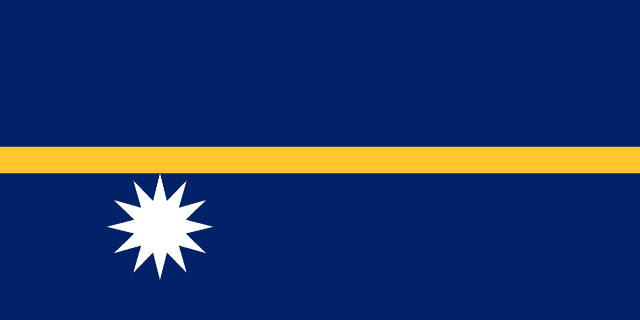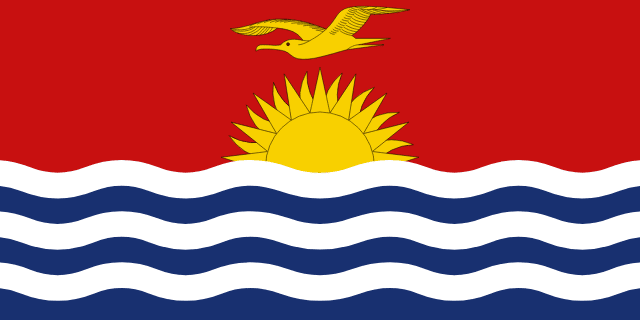Country Information
| Sovereign State | Yes |
| Country Codes | KI, KIR |
| Official Name | Republic of Kiribati |
| Continent | Oceania |
| Capital | South Tarawa |
| Government Type | Unitary Parliamentary Republic |
| Currency | Kiribati Dollar (KID) and Australian Dollar (AUD) |
| Calling Code | +686 |
| Member Of | United Nations, Commonwealth of Nations, Pacific Community, Pacific Islands Forum |
| Population | Approximately 120,000 (as of 2023) |
| Total Area | 811 square kilometers |
| Highest Point | Unnamed location on Banaba Island (81 meters or 266 feet) |
| Lowest Point | Pacific Ocean Sea Level |
| GDP Per Capita | Around $1,600 USD |
| Life Expectancy | Approximately 68 years |
| Internet TLD | .ki |
Kiribati National Anthem
Teirake Kaini Kiribati (Stand Up, Kiribati)
Stand up, Kiribati,
Sing with jubilation,
Prepare to accept responsibility
And to help each other,
The attainment of contentment
And peace for our homeland.
Flags of Neighboring Countries




History of the Kiribati Flag
The national flag of Kiribati was officially adopted on July 12, 1979. The flag is symbolic of the island nation’s geographical and cultural aspects. The upper half is red with a yellow frigate bird flying over a rising sun, and the lower half is blue with three horizontal wavy white stripes.
The frigate bird symbolizes command of the sea, power, freedom, and Kiribati cultural dance patterns. The 17 rays of the sun represent the 16 Gilbert Islands and Banaba (Ocean Island). The blue and white waves represent the Pacific Ocean, which plays a crucial role in the lives of the I-Kiribati people. The three white wavy lines also symbolize the three groups of islands: Gilbert, Phoenix, and Line Islands.
The flag’s design was the result of a local competition and reflects the nation’s independence and unique position straddling the equator. The use of vibrant colors is significant in representing the warmth and energy of the people of Kiribati. The flag is a source of pride and serves as a reminder of the nation’s unity, culture, and rich maritime history. It’s often displayed during national celebrations, on public buildings, and in international events where Kiribati is represented.

